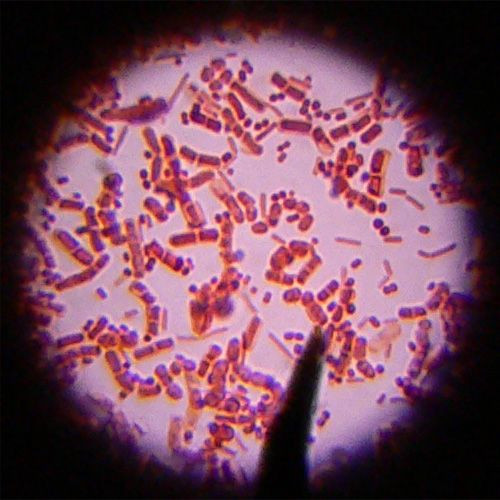Half Of All Surgeries, 27% Of Chemotherapy Result In Antibiotic-Resistant Infection — And It's Only Set To Get Worse

Antibiotic resistance is a condensed way of saying that the drugs we’ve come to rely on for everything, from sore throats to syphilis, no longer work — a problem that kills at least 23,000 people each year. According to a new study, if the problem is not addressed soon, more people will die from common surgical procedures and cancer treatments.
Since the Scottish scientist Alexander Fleming first identified penicillin in the mid-20th century, we have come to rely on antibiotics as our first, and often only, line of defense against deadly infections. This has resulted in countless lives being saved — but it can only work for so long. Scientists recently noted that our incessant use of antibiotics has sped up the natural course of evolution, causing certain bacteria to develop a resistance to these medications at an unprecedented rate. Because of this, many once-popular antibiotics for common infections no longer work at all, putting as many as 10 million people at risk of death each year.
Antibiotics, however, are not only used to treat patients already sick with infections. They also help to protect patients from contracting potentially deadly infections after a lifesaving medical procedure, such as chemotherapy, pacemaker implantation, or Cesarean section. The current study, published in The Lancet, found that without these important drugs, death from surgical procedures could return to what we saw in a world before modern medicine.
“Anytime you're going to need a surgery or a transplant, you're going to need effective antibiotics. It's something that affects all of us,” said study senior author Ramanan Laxminarayan, according to HealthDay.
In order to understand the exact impact antibiotic resistance could have on surgery and cancer treatments, the researchers reviewed hundreds of clinical trials that occurred between 1968 and 2011. These surgeries included hip replacements, C-sections, prostate biopsies, appendectomies, hysterectomies, and colon surgeries. Results revealed that 39 to 51 percent of surgical site infections and 27 percent of post-chemotherapy infections were caused by bacteria that had already developed some form of resistance to antibiotics.
Using a computer model, the team was able to predict that just a 10 percent increase in antibiotic resistance could lead to 40,000 more infections and at least 2,100 infection-related deaths following surgery or chemo each year. If that were bumped up to a 70 percent increase in resistance, these numbers would skyrocket to 280,000 annual infections and 15,000 deaths.
Antibiotic resistance is a problem that could potentially affect everyone, regardless of their health, culture, or lifestyle choices. This is because, as Laxminarayan puts it, “Antibiotics are the one medication that everyone will get at some point in their life.” This study only looked at a few of the many procedures that require antibiotics. If it included all of them, their figures would have been even higher.
It’s not all bad news, however; recent advances in efforts to create new antibiotics have proven fruitful. Last year, for example, scientists at the University of Bern in Switzerland developed a substance they believe could replace antibiotics for treatment in severe bacterial infections. Research into vaginal bacteria has also suggested that a specific strain called Lactobacillus gasseri could be used as the base for new antibiotics. Governments around the world are also doing their share to address the crisis, with President Obama hosting this year’s Antibiotic Resistance Summit this summer.
Source: Laxminarayan R, Teillant A, Gandra S, Barter D, Morgan DJ. Potential burden of antibiotic resistance on surgery and cancer chemotherapy antibiotic prophylaxis in the USA: a literature review and modelling study. The Lancet. 2015.



























